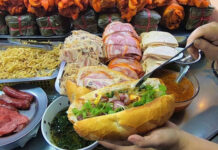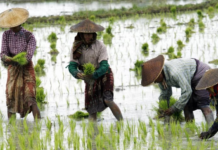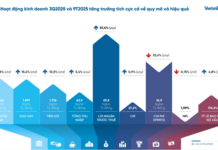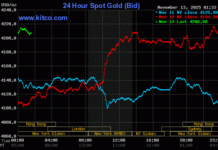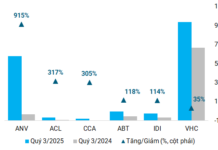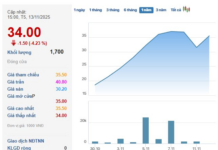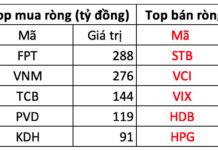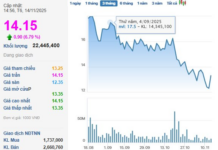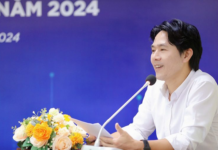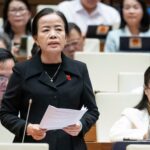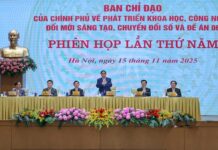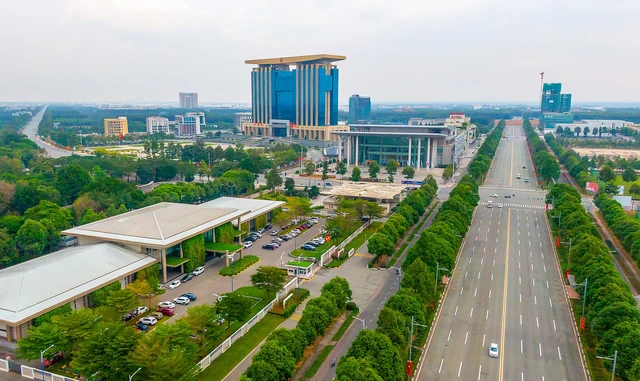The draft Law on Special Consumption Tax (amended) presented at the 8th Session consists of 4 Chapters and 12 Articles, closely following the 7 policy groups in the dossier for formulating the Law, which was approved by the National Assembly Standing Committee.
The Law aims to refine the regulations on special consumption tax policies to expand the tax base, such as including taxed items with a mixed tax rate for cigarettes, and increasing the special consumption tax rate for alcohol and beer. It also ensures transparency, comprehensibility, and ease of implementation to contribute to enhancing the capacity and effectiveness of tax management in preventing tax evasion, revenue loss, and tax debt. This will ensure stable state budget collection.
Regarding the proposal to impose a 10% tax on sugary drinks, some delegates suggested carefully considering this regulation. According to Delegate Duong Minh Anh from Hanoi’s National Assembly Delegation, researchers have indicated that imposing a 10% special consumption tax on this item will increase revenue by approximately 8,507 billion VND in the first year, but direct tax revenue will decrease by about 2,152 billion VND. In subsequent years, both indirect and direct tax revenues will decline.
This leads to a decrease in added value, production value, and profit, resulting in a reduction in the total state budget revenue in later cycles. Additionally, implementing this policy will impact 25 sectors in the economy. “Imposing a special consumption tax on sugary drinks will not increase state budget revenue but will negatively affect the economy,” said Ms. Anh.
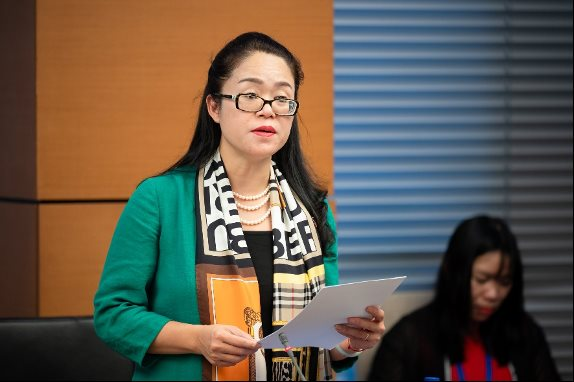
Delegate Duong Minh Anh – Hanoi National Assembly Delegation
Therefore, Delegate Duong Minh Anh suggested that there must be a basis to prove that imposing a special consumption tax on sugary drinks with a content of 5g/100ml can change consumer behavior and effectively reduce the proportion of overweight and obese people compared to other sugary products such as cakes, candies, dried fruits, and sweetened dairy products. Experience shows that many countries impose taxes on sugary drinks, but the obesity rate continues to rise.
While the goal of increasing taxes is to discourage consumers from using sugary drinks that contribute to obesity, it may lead to an increase in the consumption of informally produced drinks or handcrafted products. Currently, many foreign businesses have switched to low-sugar products with less than 5g of sugar but still retain sweetness, thus avoiding the tax. As a result, imposing a special consumption tax on domestic businesses inadvertently creates inequality between domestic and foreign enterprises.
Given the above analysis, the delegate from Hanoi’s National Assembly Delegation proposed that the drafting body reconsider imposing a special consumption tax on sugary drinks…
Sharing the same view, delegate Thai Quynh Mai Dung from Vinh Phuc Province’s National Assembly Delegation requested that the drafting body comprehensively reconsider the proposal to include sugary drinks with a sugar content of over 5g/100ml, according to Vietnamese standards, as items subject to the Special Consumption Tax. Currently, there are still divergent opinions from state management agencies, the business community, experts, and consumers.
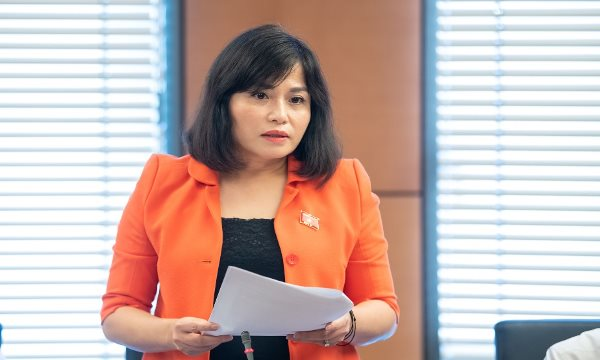
Delegate Thai Quynh Mai Dung, Vinh Phuc Province’s National Assembly Delegation
Regarding health impacts, the drafting body presented data in the Assessment Report on the rapid increase in the rate of overweight and obese children over the past decade.
“However, we need to consider the context of the rate of undernourishment, stunting, and underweight in children, especially in Vietnam’s mountainous areas, which remains high,” said Ms. Dung. According to the National Nutrition Survey 2019-2020, the rate of stunting and underweight in children under five was 19.6% (higher than the rate of overweight and obesity) and showed a significant gap between regions, especially between mountainous, rural, and urban areas.
In terms of budgetary impacts, the Assessment Report shows that if the Special Consumption Tax is applied at a proposed rate of 10% starting in 2026, it will increase revenue by about 2,400 billion VND in the first year, but revenue in subsequent years will decrease. However, the report does not provide information on the extent of this decrease.
According to the Central Institute for Economic Management (CIEM)’s assessment report on the economic impact of the Special Consumption Tax on sugary drinks, if a 10% Special Consumption Tax rate is applied to sugary drinks, budget revenue will decrease by approximately 4,978 billion VND from indirect taxes in the second year, excluding the corresponding reduction in direct taxes.
Additionally, the report indicates that this tax policy will not only directly impact the beverage industry but also have a ripple effect on 25 sectors in the economy, leading to a GDP decline of nearly 0.5%, equivalent to 42,570 billion VND. Therefore, the Central Institute for Economic Management suggested not imposing the Special Consumption Tax on sugary drinks.
Regarding international experience, according to the Assessment Report by the drafting body, at least 107 countries and territories worldwide currently impose a Special Consumption Tax on sugary drinks. However, Ms. Dung mentioned a World Health Organization (WHO) report released on December 5, 2023, and currently available on the organization’s website. The report states that half of these countries also impose a special consumption tax on drinking water, even though the World Health Organization encourages its consumption.
Thus, the World Health Organization believes that not all countries impose this tax for health reasons but simply include all beverages in the taxable category. For this reason, delegate Thai Quynh Mai Dung suggested further studying this aspect to propose appropriate measures to control obesity and other non-communicable diseases.
“Countries like India, Mexico, Thailand, and the Philippines have been imposing the Special Consumption Tax on sugary drinks for many years, but the obesity rate continues to rise, even as the consumption of sugary drinks decreases. In contrast, countries like Japan, Singapore, and China, which do not apply this tax, have successfully controlled obesity,” Ms. Dung cited.
According to delegate Thai Quynh Mai Dung, this tax tool is ineffective in changing consumer behavior, especially when the consumers of sugary drinks are mostly children.
Moreover, due to the divergent opinions on the effectiveness of this proposal in terms of health and economic impacts, delegate Thai Quynh Mai Dung from Vinh Phuc Province’s National Assembly Delegation requested the drafting body to comprehensively reconsider including sugary drinks in the Special Consumption Tax category.
A Comprehensive Review of Special Consumption Tax on Sugary Drinks is Needed
The proposal to levy a 10% excise tax on sugary beverages with a sugar content of 5g/100ml or more has sparked a heated debate among government ministries, industry experts, scientists, businesses, and consumers alike.
The Journey of Nghi Son: Aspiring to Become a Key Urban-Industrial Hub
Resolution No. 58-NQ/TW dated August 5, 2020, of the Politburo on “Building and Developing Thanh Hoa Province by 2030, with a Vision to 2045” affirms: “Continue to invest synchronously and complete essential infrastructure projects in the Nghi Son Economic Zone, soon turning this area into one of the key coastal urban-industrial-service centers of the country.”
A Sugary Proposal: The Taxing Question of Sweet Drinks
The proposed Special Consumption Tax Law (amended) will be presented to the National Assembly for opinions at the 8th Session, taking place in November 2024. One of the novel points of this draft law is the proposed tax on sugary drinks. However, as this is the first time that a special consumption tax on sugary drinks has been proposed in such a law, it has sparked much debate and controversy.



